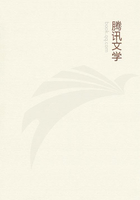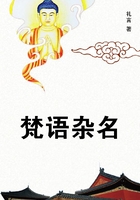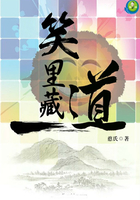First: Are both Acts and motions to be included in the category of Action, with the distinction that Acts are momentary while Motions, such as cutting, are in time? Or will both be regarded as motions or as involving Motion?
Secondly: Will all activities be related to passivity, or will some- for example, walking and speaking- be considered as independent of it?
Thirdly: Will all those related to passivity be classed as motions and the independent as Acts, or will the two classes overlap? Walking, for instance, which is an independent, would, one supposes, be a motion; thinking, which also does not essentially involve "passivity,"an Act: otherwise we must hold that thinking and walking are not even actions.But if they are not in the category of Action, where then in our classification must they fall?
It may perhaps be urged that the act of thinking, together with the faculty of thought, should be regarded as relative to the thought object; for is not the faculty of sensation treated as relative to the sensible object? If then, we may ask, in the analogue the faculty of sensation is treated as relative to the sensible object, why not the sensory act as well? The fact is that even sensation, though related to an external object, has something besides that relation: it has, namely, its own status of being either an Act or a Passion.Now the Passion is separable from the condition of being attached to some object and caused by some object: so, then, is the Act a distinct entity.Walking is similarly attached and caused, and yet has besides the status of being a motion.
It follows that thought, in addition to its relationship, will have the status of being either a motion or an Act.
19.We have to ask ourselves whether there are not certain Acts which without the addition of a time-element will be thought of as imperfect and therefore classed with motions.Take for instance living and life.The life of a definite person implies a certain adequate period, just as his happiness is no merely instantaneous thing.Life and happiness are, in other words, of the nature ascribed to Motion:
both therefore must be treated as motions, and Motion must be regarded as a unity, a single genus; besides the quantity and quality belonging to Substance we must take count of the motion manifested in it.
We may further find desirable to distinguish bodily from psychic motions or spontaneous motions from those induced by external forces, or the original from the derivative, the original motions being activities, whether externally related or independent, while the derivative will be Passions.
But surely the motions having external tendency are actually identical with those of external derivation: the cutting issuing from the cutter and that effected in the object are one, though to cut is not the same as to be cut.
Perhaps however the cutting issuing from the cutter and that which takes place in the cut object are in fact not one, but "to cut"implies that from a particular Act and motion there results a different motion in the object cut.Or perhaps the difference [between Action and Passion] lies not in the fact of being cut, but in the distinct emotion supervening, pain for example: passivity has this connotation also.
But when there is no pain, what occurs? Nothing, surely, but the Act of the agent upon the patient object: this is all that is meant in such cases by Action.Action, thus, becomes twofold: there is that which occurs in the external, and that which does not.The duality of Action and Passion, suggested by the notion that Action [always]
takes place in an external, is abandoned.
Even writing, though taking place upon an external object, does not call for passivity, since no effect is produced, upon the tablet beyond the Act of the writer, nothing like pain; we may be told that the tablet has been inscribed, but this does not suffice for passivity.
Again, in the case of walking there is the earth trodden upon, but no one thinks of it as having experienced Passion [or suffering].
Treading on a living body, we think of suffering, because we reflect not upon the walking but upon the ensuing pain: otherwise we should think of suffering in the case of the tablet as well.
It is so in every case of Action: we cannot but think of it as knit into a unity with its opposite, Passion.Not that this later "Passion" is the opposite of Action in the way in which being burned is the opposite of burning: by Passion in this sense we mean the effect supervening upon the combined facts of the burning and the being burned, whether this effect be pain or some such process as withering.
Suppose this Passion to be treated as of itself producing pain:
have we not still the duality of agent and patient, two results from the one Act? The Act may no longer include the will to cause pain; but it produces something distinct from itself, a pain-causing medium which enters into the object about to experience pain: this medium, while retaining its individuality, produces something yet different, the feeling of pain.
What does this suggest? Surely that the very medium- the act of hearing, for instance- is, even before it produces pain or without producing pain at all, a Passion of that into which it enters.
But hearing, with sensation in general, is in fact not a Passion.Yet to feel pain is to experience a Passion- a Passion however which is not opposed to Action.
20.But though not opposed, it is still different from Action and cannot belong to the same genus as activity; though if they are both Motion, it will so belong, on the principle that alteration must be regarded as qualitative motion.














